1-800-982-4730
1-800-982-4730
One of the most popular ways to get a caffeine fix is through coffee. But how much caffeine is in a teaspoon of ground coffee? This is a common question among coffee drinkers who want to know how much caffeine they are consuming.
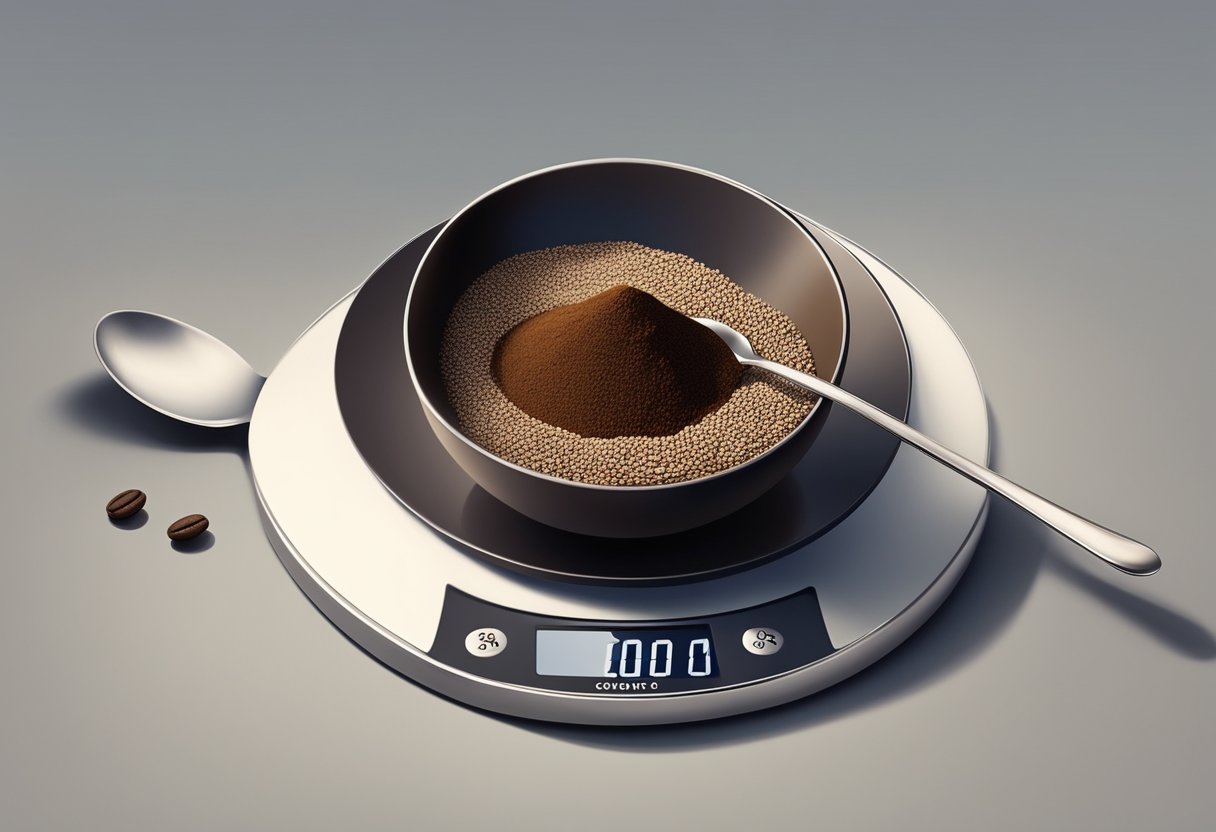
According to Mayo Clinic, a teaspoon of ground coffee generally contains around 30-50 milligrams of caffeine. However, this amount can vary depending on the type of coffee bean and how finely it is ground. For instance, Robusta beans contain more caffeine than Arabica beans. Additionally, the strength of the brew can also affect the amount of caffeine in a cup of coffee.
It's important to note that caffeine content can vary greatly among different coffee drinks. For example, a standard 8-ounce cup of brewed coffee can contain anywhere from 95 to over 500 milligrams of caffeine, depending on the type of coffee and how it is prepared. Therefore, it's crucial for coffee drinkers to be aware of the caffeine content in their favorite drinks to avoid overconsumption.
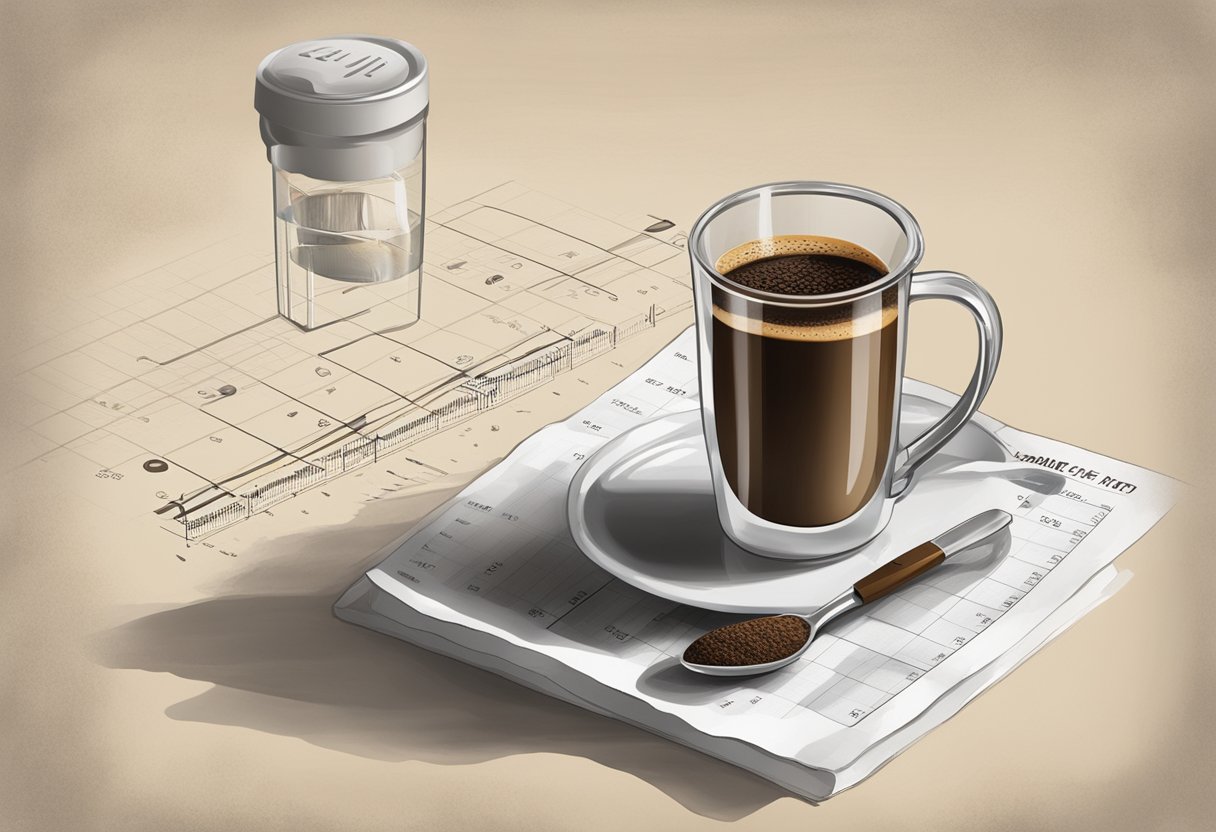
When it comes to coffee, caffeine is the most well-known and widely consumed psychoactive substance. Understanding how much caffeine is in a cup of coffee can help people make informed decisions about their caffeine intake. This section will explore the caffeine content in different types of coffee and the factors that influence it.
The amount of caffeine in a cup of coffee can vary significantly depending on the type of coffee. A standard 8-ounce cup of brewed coffee typically contains between 70 and 140 milligrams of caffeine, while a shot of espresso contains around 63 milligrams of caffeine.
Instant coffee, on the other hand, contains less caffeine than brewed coffee. According to the USDA, one rounded teaspoon of instant coffee provides around 57 milligrams of caffeine. Decaf coffee, as the name suggests, contains very little caffeine, with most decaf coffees containing less than 5 milligrams of caffeine per 8-ounce cup.
The type of coffee beans and the roast level can also affect the caffeine content. Robusta coffee beans have a higher caffeine content than Arabica beans, with Robusta beans containing around twice as much caffeine as Arabica beans. Additionally, lighter roasts generally contain more caffeine than darker roasts.
Several factors can influence the caffeine content in a cup of coffee. The brewing method is one of the most significant factors, with different brewing methods producing different caffeine contents. For example, a French press typically produces coffee with a higher caffeine content than drip coffee.
The amount of coffee used in the brewing process can also affect the caffeine content. Using more coffee grounds will generally result in a higher caffeine content. Finally, the serving size can also impact the caffeine content, with larger cups containing more caffeine than smaller cups.
In summary, the caffeine content in a cup of coffee can vary significantly depending on several factors, including the type of coffee, the roast level, the brewing method, the amount of coffee used, and the serving size. By understanding these factors, coffee drinkers can make informed decisions about their caffeine intake.
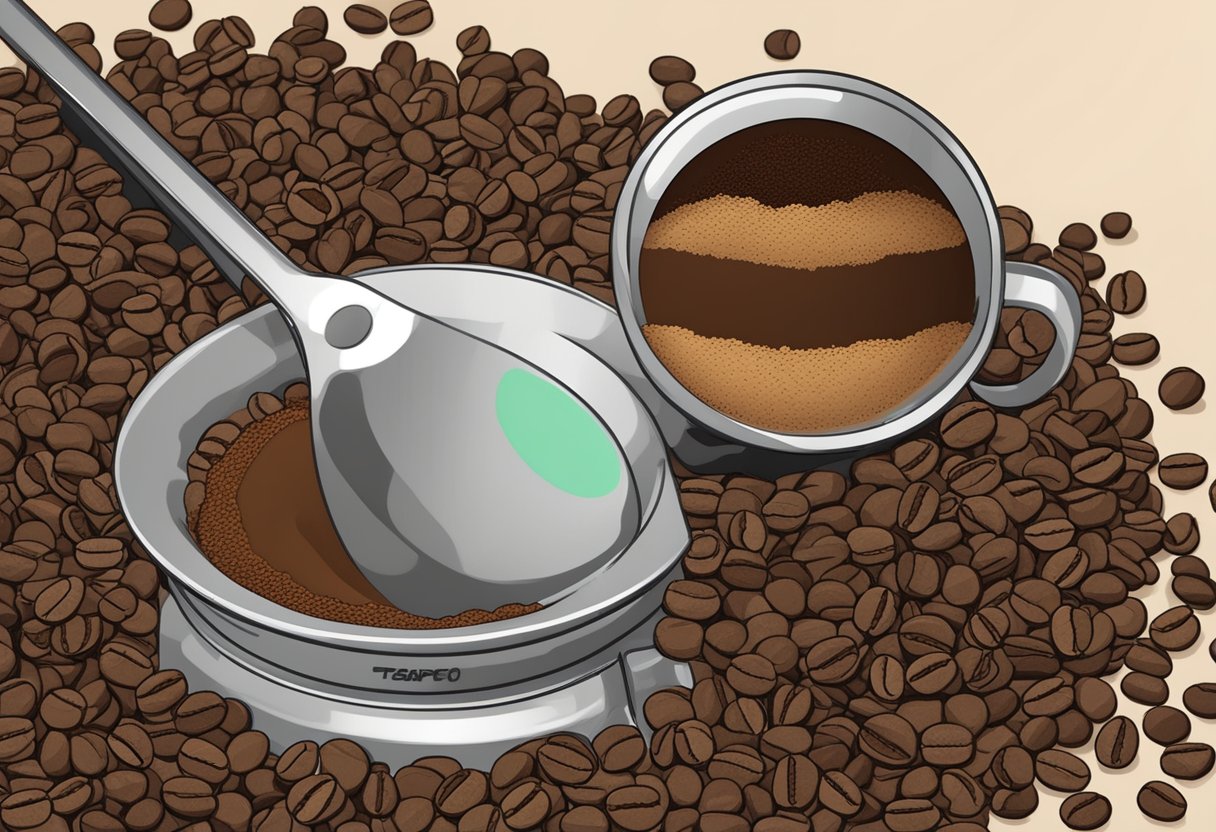
Caffeine is a stimulant that is widely consumed across the world. It is found in a variety of drinks and foods, including coffee, tea, soda, and chocolate. While moderate caffeine intake can have some benefits, excessive consumption can lead to various health concerns.
Caffeine is known to improve alertness, mood, and athletic performance. It can also reduce the risk of certain diseases, such as liver cancer and Parkinson's disease. Moderate caffeine intake has also been linked to a reduced risk of heart disease.
Excessive caffeine consumption can lead to various health concerns, including anxiety, restlessness, headaches, heart palpitations, and difficulty sleeping. Pregnant women should also limit their caffeine intake, as high levels of caffeine can increase the risk of miscarriage and low birth weight.
Individuals with medical conditions such as high blood pressure should also be mindful of their caffeine intake. Sensitivity to caffeine varies among individuals, and some people may experience negative effects even with moderate consumption.
In conclusion, caffeine can have both positive and negative impacts on health, depending on the amount consumed. It is important to be mindful of caffeine intake and to consult a healthcare professional if there are any concerns about excessive consumption or its potential impact on medical conditions.
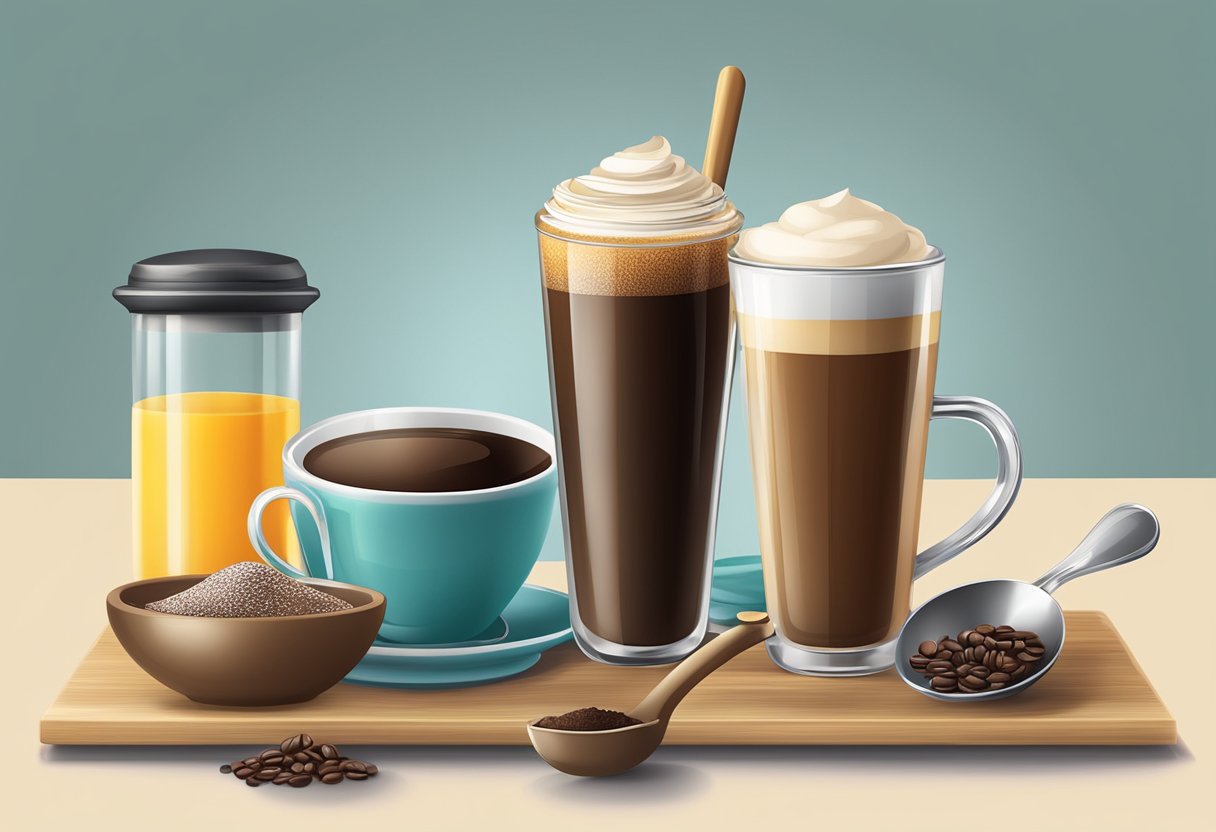
When it comes to caffeine content, coffee is not the only beverage that contains this stimulant. Tea, energy drinks, and cola are some of the other popular beverages that contain caffeine. In this section, we will compare the caffeine content of coffee with these other beverages.
Tea is a popular beverage that is consumed by people all over the world. While tea contains less caffeine than coffee, it still contains a significant amount of this stimulant. A cup of black tea contains around 47 milligrams of caffeine, while a cup of green tea contains around 30 milligrams. Herbal teas, on the other hand, are caffeine-free.
Energy drinks are another popular beverage that contains caffeine. While the caffeine content of energy drinks varies, most of them contain around 80 milligrams of caffeine per serving. This is less than the caffeine content of a cup of coffee, which contains around 95 milligrams of caffeine per serving.
Cola is a popular soda that is consumed by people of all ages. While most colas contain caffeine, the amount of caffeine varies depending on the brand. On average, a can of cola contains around 30 milligrams of caffeine. This is significantly less than the caffeine content of a cup of coffee.
In conclusion, while coffee contains more caffeine than most other beverages, it is not the only beverage that contains this stimulant. Tea, energy drinks, and cola are some of the other popular beverages that contain caffeine. The caffeine content of these beverages varies, and it is important to be aware of the amount of caffeine you are consuming to avoid negative side effects.
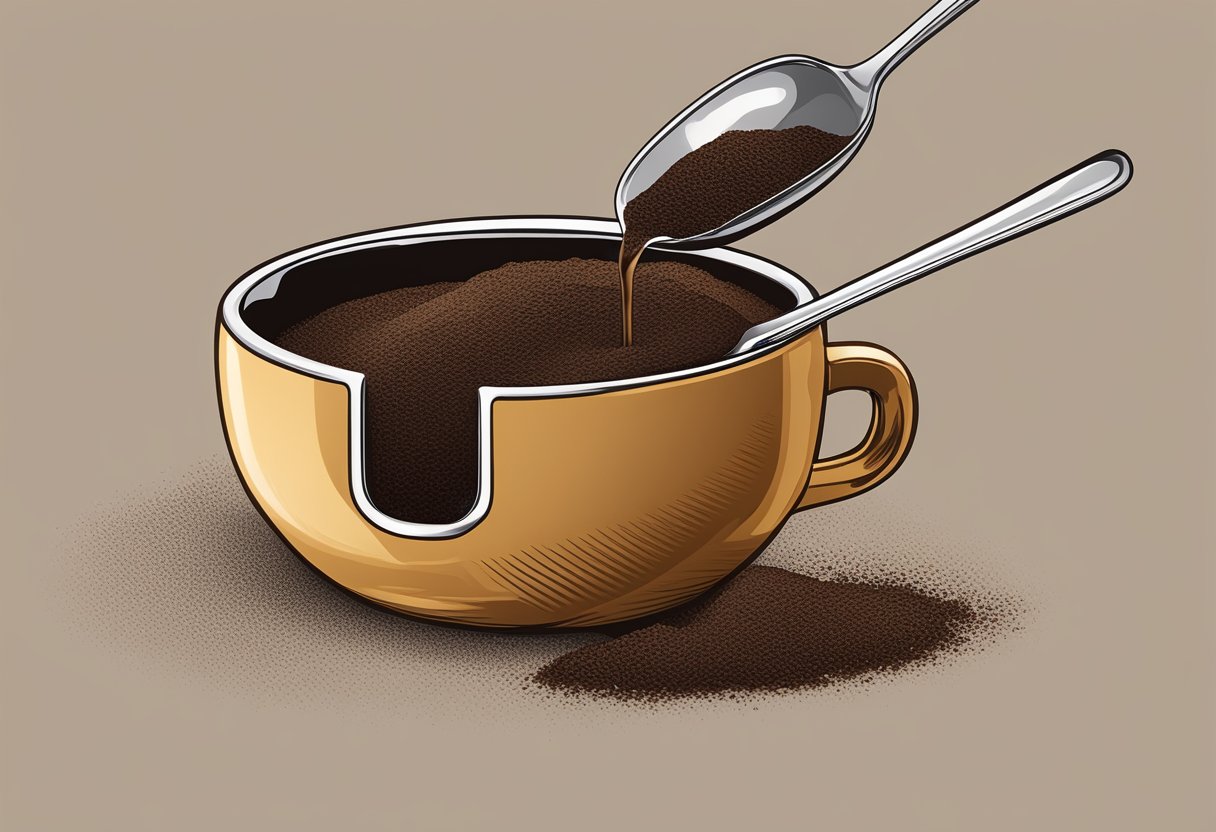
Caffeine is a stimulant that is found in many beverages, including coffee. Coffee lovers who are concerned about their caffeine intake may wonder how much caffeine is in one teaspoon of ground coffee. In this section, we will discuss how to measure and control caffeine intake.
When it comes to caffeine content, serving sizes can be confusing. A typical serving of coffee is 8 ounces, but some coffee shops serve much larger sizes. It is important to pay attention to serving sizes to accurately measure caffeine intake.
The type of coffee bean used can affect the caffeine content of the coffee. Arabica coffee beans typically have less caffeine compared to Robusta beans. Additionally, darker roasts tend to have less caffeine than lighter roasts. It is important to choose the right coffee beans to accurately measure caffeine intake.
To measure the caffeine content in coffee, a spectrophotometer can be used. However, this is not practical for most coffee lovers. Instead, they can use the following guidelines to estimate caffeine content:
It is important to note that caffeine content can vary depending on the brewing method. For example, a cup of coffee made with hot water will have less caffeine than a shot of espresso.
Measuring and controlling caffeine intake is important for those who are sensitive to caffeine or who want to limit their caffeine intake for other reasons. By paying attention to serving sizes and choosing the right coffee beans, coffee lovers can accurately measure their caffeine intake and enjoy their coffee without overdoing it.